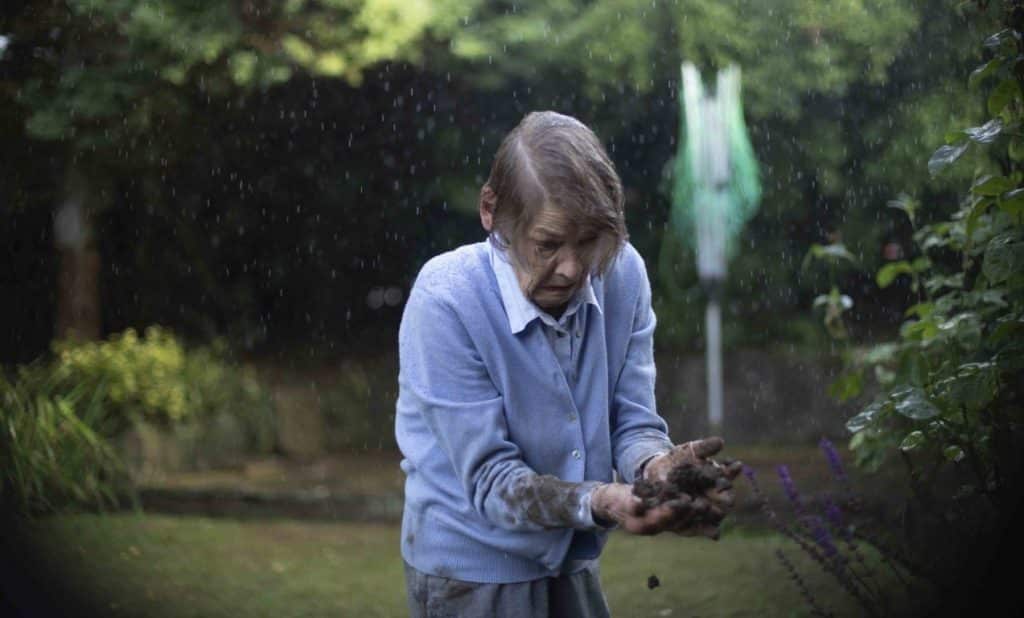Read also:
How to Watch FX Live Without CableHow To Watch AMC Without CableHow to Watch ABC Without CableHow to Watch Paramount Network Without CableGlenda Jackson is mesmerizing as a woman struggling with dementia — and a missing persons case — in this BBC import.
Based on the novel of the same name by Emma Healey, the new-to-American-TV-movie Elizabeth is Missing seems at the surface like yet another in the seemingly endless parade of missing women in television and film. We’ve seen lost women from trains and in windows, what more can there be? Written by Andrea Gibb and directed by Aisling Walsh, Elizabeth is Missing is less a story about an actual missing person and more a story about loss, aging, and the slippery movement of memory.
The titular Elizabeth (Maggie Steed) is the best friend of Maud Horsham (Academy Award-winner and erstwhile King Lear Glenda Jackson), a widow in her eighties living with a steadily-worsening Alzheimer’s disease. Maud is still living on her own, albeit with cabinets full of canned peaches (she forgets she’s already bought them) and abandoned cups of tea (she forgets she’s made them), relying on sticky notes to remind her of what she’s done that day and what she plans to be doing tomorrow.
It’s one such note that sends her to wait for Elizabeth outside of their local thrift shop, but Elizabeth never arrives. Maud immediately knows that something is wrong, but none of the people around her, not her loving but stressed daughter Helen (Helen Behan) or her partner-in-crime granddaughter Katy (Nell Williams), seemingly believe or care that Elizabeth is gone. Maud decides to take matters into her own hands and solve Elizabeth’s disappearance, even as her fragile hold on time and memory begins to slip.

Entwined with the emotions of Elizabeth’s disappearance is the mental resurfacing of Maud’s other missing person trauma: the unsolved vanishing of her older sister Sukey (Sophie Rundle) in 1949. Flashbacks show young Maud (Liv Hill) grappling with Sukey’s disappearance as she unpicks the complicated webs that had grown up around her sister; with brother-in-law Frank (Mark Stanley), creepy lodger Dougie (Neil Pendleton), and a local “madwoman” (Cara Kelly) all obsessed with Sukey before she was gone. Sukey’s ghostly memory bleeds into Maud’s current daily life, at times conflating with Elizabeth’s disappearance in Maud’s mind, and becoming yet another problem that no one wants to help Maud with.
The two mysteries wrap up by the end of Elizabeth is Missing, perhaps a bit neatly, but the missing women were never really the focal point of the story. That role belongs to Maud, played by Jackson as a stubborn and acerbic woman losing the very threads of her existence. Maud snaps at a store cashier who points out that she bought peaches just the day before, but while Maud growls defensively that obviously, she wants the peaches, the fear and uncertainty are clear in her eyes. Why doesn’t she know that she bought peaches yesterday?
Elizabeth is Missing is a bittersweet showcase for a powerhouse like Jackson.
Neither Jackson nor the film itself pretends that Maud’s disease is anything but cruel; she hurts herself and can’t remember how it happens, she has an accident on her way to the bathroom, she can’t recognize her granddaughter and calls her terrible things before she remembers both Katy and the things she just said.
The slightness of the two mysteries is more than compensated for by Jackson’s performance. Everyone in the cast is strong, but they’re there to circle Jackson’s Maud and that’s as it should be. Jackson captures Maud’s distress and amusement, the cheeky joy in some fish and chips with Katy, her dismay at little things, and her absolute devastation at the larger ones. Elizabeth is Missing is a bittersweet showcase for a powerhouse like Jackson; there is no happy ending. Perhaps Elizabeth will be found, maybe Sukey’s secrets will be brought to light, but nothing can bring Maud back to herself.
Elizabeth is Missing premieres Sunday, January 3rd, on PBS.